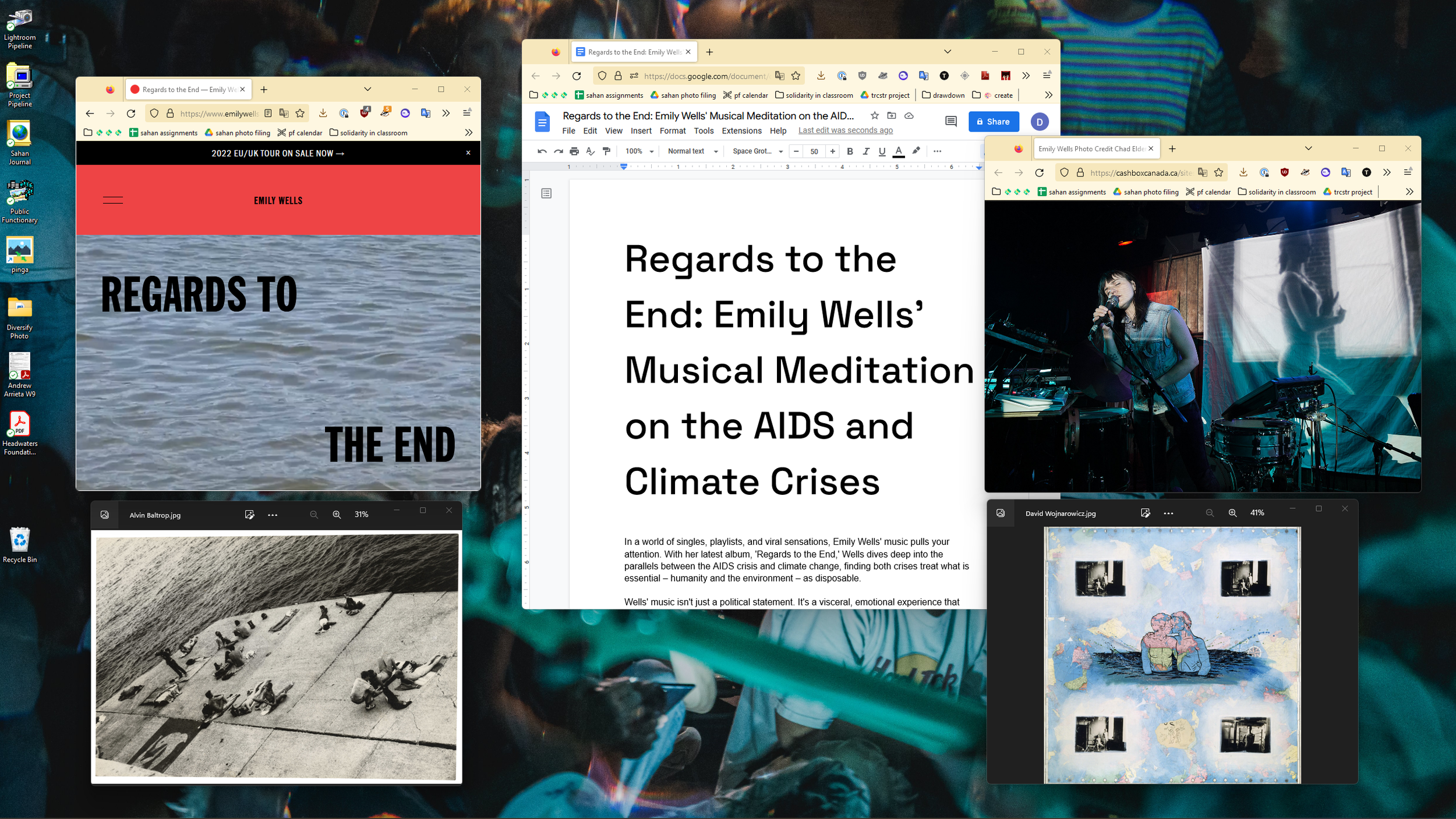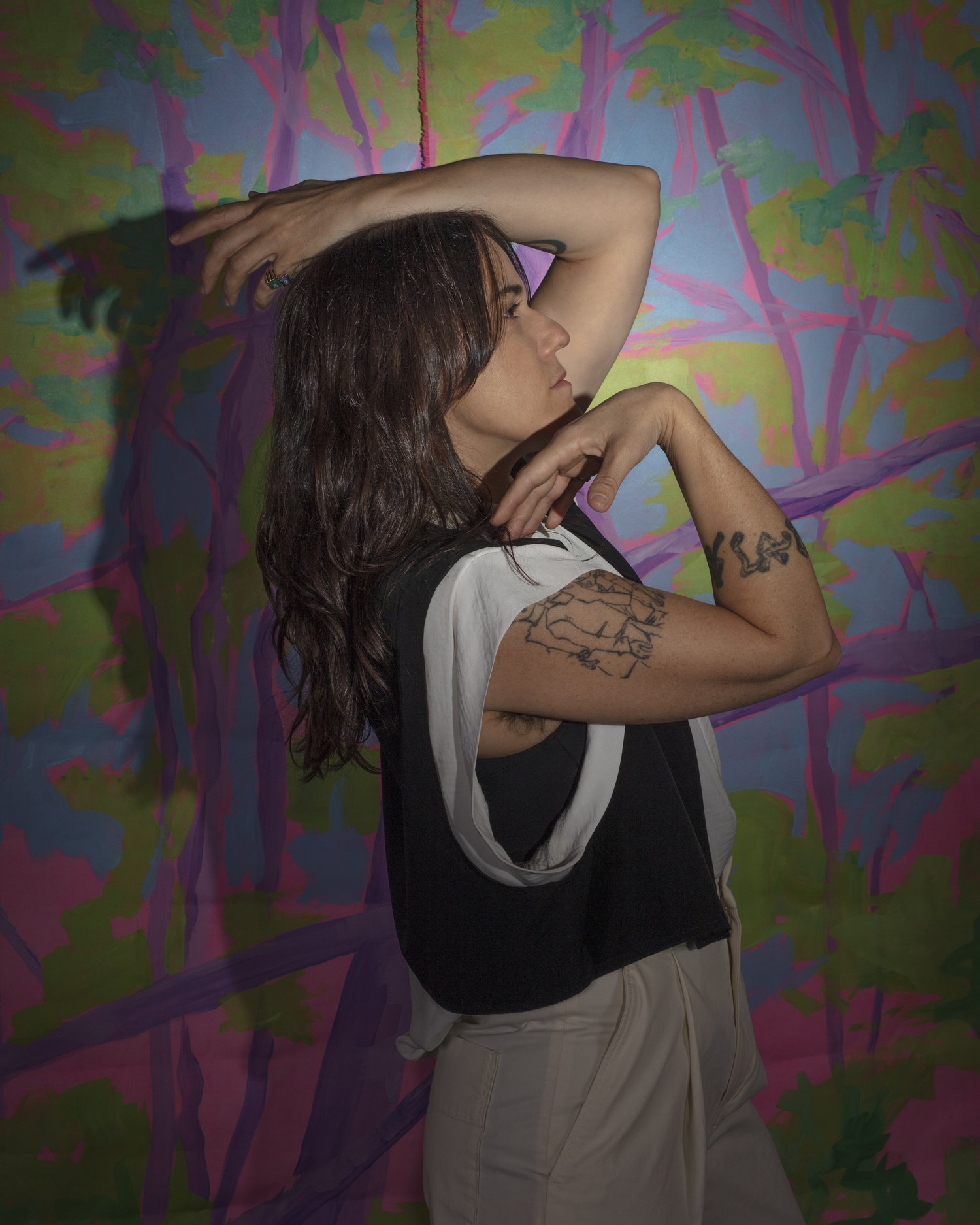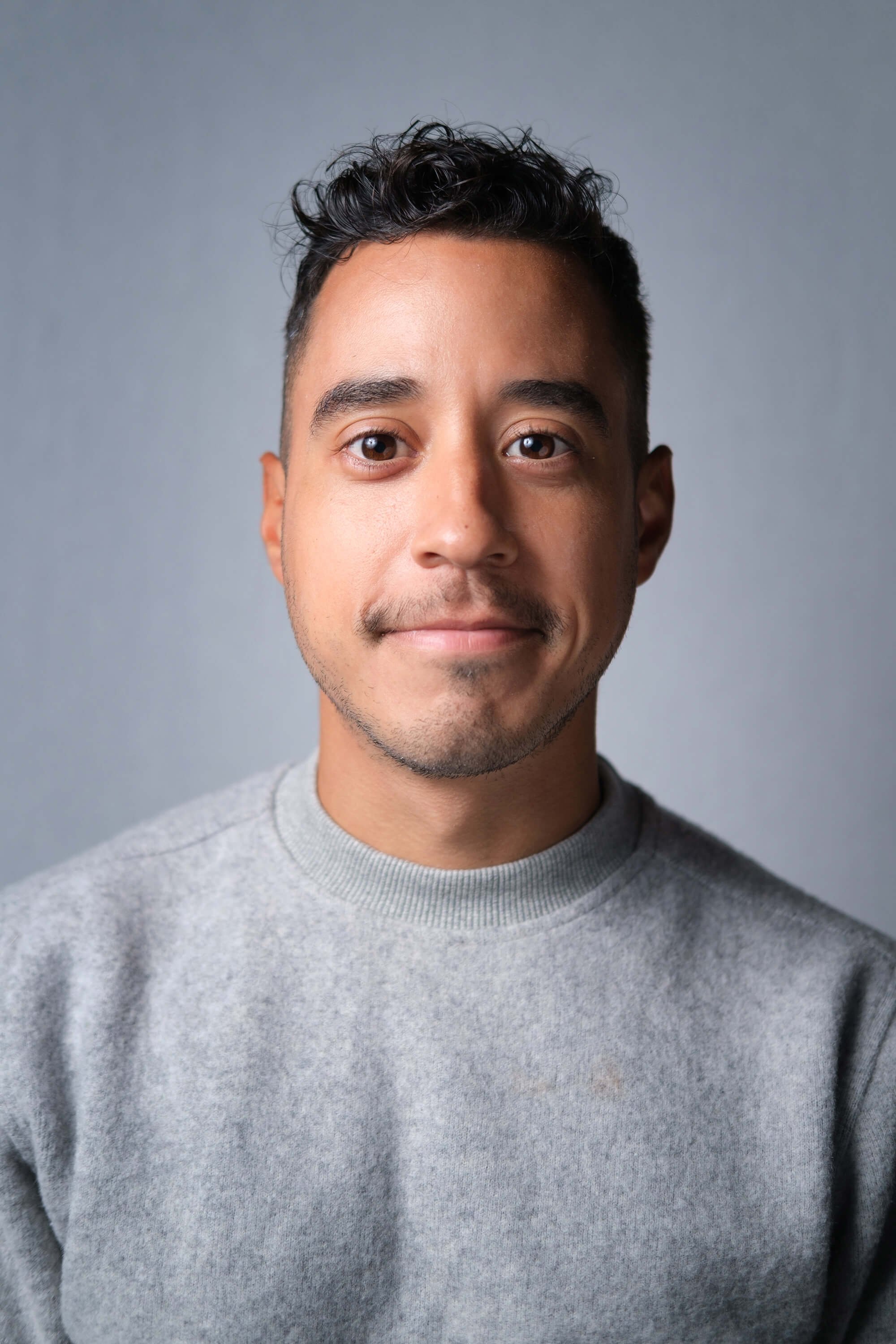Regards to the End: Emily Wells' Musical Meditation on the AIDS and Climate Crises
by Drew Arrieta
Interview prep, digital collage, 2023, by Drew Arrieta
In a world of singles, playlists, and viral sensations, Emily Wells' music pulls your attention. With her latest album, 'Regards to the End,' Wells dives deep into the parallels between the AIDS crisis and climate change, finding both crises treat what is essential – humanity and the environment – as disposable.
Wells' music isn't just a political statement. It's a visceral, emotional experience that transports listeners to a place of introspection and contemplation. Her dense layers of vocals, synths, drums, cello, violin, bass and wind instruments create a soundscape that feels both otherworldly and intimately personal.
In 'Regards to the End,' Wells serves as a voice for the ongoing legacy and importance of art in social movements. In a recent Zoom conversation, she shared her personal journey of learning about her role as an artist, and how she finds hope in the face of global crises.
As we grapple with the monumental shifts necessary to repair our relationship with the planet, Wells' honesty creates space for grief and growth. Her music is a call to action, urging us to take a hard look at ourselves and the world around us.
Drew Arrieta: How did the shift feel, going from the subject matter of your earlier music to the themes unpacked in 'Regards to the End'?
Emily Wells: It was an unconscious shift. It's something that I can understand with some hindsight. The conscious part was realizing how much I needed other art and literature as part of my practice. It's always been part of my practice but this was in a more upfront conscious way. In the case of my most recent record, I was trying to answer what can the artists, thinkers, activists of the AIDS crisis teach us about the climate crisis?
Those were my elders, many of them are not with us anymore, but they left behind all this incredible writing and art and music. And so it's like, kind of this roadmap in a way, potentially. But when I first started doing a lot of the research, it was heartbreaking, you know. Reading about AIDS and climate, I basically chose the two most horrifying things to try to think about on a daily basis.
I think that's how the lens began to shift a bit for me, I became more focused on the artists themselves. And less on science or even some of the practicalities of activism. And embedded in activism are these artists. And I think that's one of the reasons why I was drawn to the artists from early in the AIDS crisis.
There was so much creativity, bombastic color, humor, and all of these things that were part of those protests. I think they are really vivacious and something that we should be paying attention to. And they accomplished so much, you know. And they were working against a bureaucratic reality, a scientific reality, and something that was bigger than them. They were dealing with a disease and in a way, I feel that’s what is happening with the planet? It's a disease, you know?
Drew: Definitely. There are a lot of parallels. And even the feeling of going up against something that is insurmountable.
Emily: Yes, totally!
Drew: It's so vast. You can't even wrap your mind around it.
Emily: Absolutely.
Drew: Going through that process of seeing the threads between both of those moments of time. Did you feel hopeful? It sounds like you experienced a range of emotions. What are some of the feelings that came up for you?
Emily: I felt hopeless. Rather, I should say powerless. It was a way to throw myself into some kind of action that could also influence the work that I was trying to make. And where the hope comes in is by realizing all of this incredible work that was being made, while people were sick, dying, and committing themselves to a life of action.
It wasn't just like a notion. It was really what they were doing with their lives, but were also making all this incredible work at the same time. I think it continued my belief in the power of making art. Which I think I can lose sight of when all these bigger questions are at hand. I definitely have thought a lot about my role. What is my role? Do artists have a role? And I think in a lot of ways making this record showed me that it does. Not because of the record that I made, but rather because of all the artists that are part of that record through my research.
Drew: I think your work definitely plays a role. We're living in a time that lacks vision on what the future could be and what can be capable. I think artists do a really good job of providing texture and feeling to the moment that we're living in, but also what the future may possibly be. And by doing that in a fun, creative, interesting, entertaining way, I think artists can really help illuminate and provide color to the world we all want to live in and also show that it's possible. I think your work speaks to this.
How do you cultivate moments of hope in your life?
Emily: I think I do that through loving people. And being loved. I think that's the most direct route to hope. And when I have to do it alone, I sit down at the piano. Losing myself is a helpful act because it's not for anything or anyone. When the thing you love the most in life is your job. Which is music for me. There is this need to always be producing something. And so I think it's a hopeful act to just make the air vibrate for the sake of your own joy and not to produce a thing.
Drew: I love that. That's super beautiful. Okay, one last question. It could be fun or the opposite of fun as well (laughter). It's the year 2050. What do you envision is the world you're in?
Emily: Oh god, that is bleak man. This is not fun. (laughter) I'm very old. But I do in some ways believe our planet is going to figure it out for us, without us. In a lot of ways that was what the record, 'This World is Too ___ For You ' is about. It was commissioned by the St. Paul Chamber Orchestra's Liquid Music series.
It was a kind of imagined eulogy for the future. So I have spent a lot of time contemplating that. There was this sort of hope, that was quite morose, around trusting the planet to do what it's going to do. But in a way, there's a lot of human sacrifice in that. And so it's both horrifying and strangely comforting, because there's a lot of renewal inside of that. But I hope we can figure it out and can all work together with the planet. We don't have to be ejected. I know that's so fucking dark. I'm sorry. (laughter)
Drew: I don't think there is anything wrong with that answer. It's honest. At this point of time, where we are, it makes complete sense to feel that way. I think a lot of folks would agree. It's something I'm always challenged by in my work. Climate change is a challenge we can't take on alone. We will need culture change and something really truly transformational. Like you said, I think the beautiful thing is nature knows what to do. Nature has been here before. It will progress and do what it needs to do without our permission. And there's some freedom in that.
Emily: And the thing is we are nature. We are just so incredibly divorced from that as a practice now. So I don't think that human beings and nature are antithetical. I just think that the way we are living obviously is. So I think there's room for human beings on the planet. Obviously. (laughter)
Drew: It might be okay if they are not there too maybe. (laughter)
Emily: We need to revert to a different way of being and be of the world. And not on it. There is a lyric in one of my songs that addresses this very specifically.
~~~~~~~~~~~
Moments after we wrapped up our interview, Emily shared the lyric from 'Eulogy for the Lucky' over email:
How does it go? The earth will inherit
Remember our gentleness, forgot our excesses
Just keep the music, and fuck all the rest of it.
Drew Arrieta is a multidisciplinary artist based in occupied Imnížaska Othúŋwe, now known as St. Paul, MN. His photography and collage works are deeply rooted in storytelling, exploring themes of resistance, current events, and his family's Puerto Rican heritage. Drew regularly contributes to Project Drawdown, a climate solutions non-profit, and Public Functionary, an artist-led exhibition and social space. His work has been featured in Vogue, NBC News, and Columbia Journalism Review.



